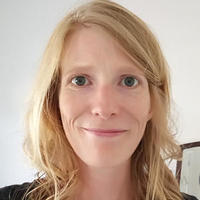Autumn Chemistry Conference 2024
Autumn Chemistry Conference

The lecture will be delivered in the Inorganic Chemistry Laboratory, and streamed online. There will be an opportunity to ask questions during the event.
Open to Year 12 and 13 students (or equiv., 16-19 yrs) and their teachers interested in finding out more about the cutting edge research happening in the field of chemistry, and hosted by the Department of Chemistry, University of Oxford.
Shaking up fluorine chemistry
From toothpaste to Teflon, fluorochemicals are important molecules widespread in society. Fluorine plays a critical role in medicines to cure diseases, fertilizers for food production, and in the production of Li-ion batteries used in our smartphones. But where does the fluorine come from? For over 200 years, the first step in accessing all fluorochemicals has been the energy-intensive conversion of the mineral fluorspar (calcium fluoride) into toxic and corrosive hydrogen fluoride (HF) gas. Handling and transporting HF to prepare fluorochemicals requires strict safety regulations, and, unfortunately, HF spillages have occurred, often with fatal consequences and detrimental environmental impact.
For the first time, we have generated fluorochemicals without hazardous HF gas. Grinding fluorspar rocks with a phosphate salt using steel balls leads to fluoride release for fluorination chemistry. This mechanochemical approach is a breakthrough and enables the synthesis of critical fluorochemicals, bypassing HF entirely. This talk will focus on the research journey underpinning this breakthrough from one of the lead authors, DPhil Calum Patel.
Science and archaeology - how chemistry can tell us about the human past
“Chemistry and Archaeology… how does that work?” is a common response when Associate Professor Amy Styring tells people of her research in archaeological chemistry. To answer this question, this talk will present some of the insights that scientific techniques can reveal into life in the past, with a particular focus on reconstructing what people were eating and where they lived at various points in their lives. The early medieval cemetery excavated in 2015 in Milton, south of Oxford, provides an interesting local case study, revealing insights into the people living in Oxfordshire more than a thousand years ago.
About the speakers:

DPhil Calum Patel completed his Master's degree in Chemistry at Imperial College London under the supervision of Prof. Anthony Barrett. After a summer research placement under the supervision of Prof. Jennifer Love at the University of British Columbia, Calum undertook a twelve-month internship at F. Hoffmann La Roche in Basel. Having experienced the synthetic challenges of late-stage fluorination in drug discovery at Roche, Calum has a keen interest in the development of novel fluorination methods. Calum joined the SBM CDT in September 2020 and completed a rotation in computational chemistry in the Duarte group, before joining the Gouverneur group in May 2021. |

Amy Styring is Associate Professor of Archaeological Science at the University of Oxford. As an archaeological chemist, she is interested in advancing scientific methods that reveal a direct and detailed picture of everyday life in the past, particularly in relation to how people produced their food and the impact that this had on the environment. |
How to attend in-person
Sixth form students are welcome to attend unaccompanied by a teacher, provided they are aged 16 or over on the day of the event and that they have given us an Emergency contact name and number (you will be able to provide this information on the form below).
For attendance in-person, registration has now closed.
Priority for in-person spaces will be given to local state schools, but other local schools, and those further afield, are welcome to register for surplus places. A waiting list will apply and all those not allocated an in-person space will be invited to attend online.
We are offering optional tours around the Chemistry Teaching Laboratory (CTL) between 14:30-15:40 (last tour 15:30). There will be opportunities to ask questions of current staff and tutors during your visit to the CTL. We will then head to the Inorganic Chemistry Laboratory at 15:40.
How to attend online
Please register by 11:00, 24th September to attend online.
Registration
We process your data according to our Privacy Notice.
Date
26/09/2024
Time
16:00 - 18:00 BST
Location
Online (open to all)
Inorganic Chemistry Laboratory (invitation only)
Audience
KS5 Chemistry students aged 16-19 years and their teachers and parents.




